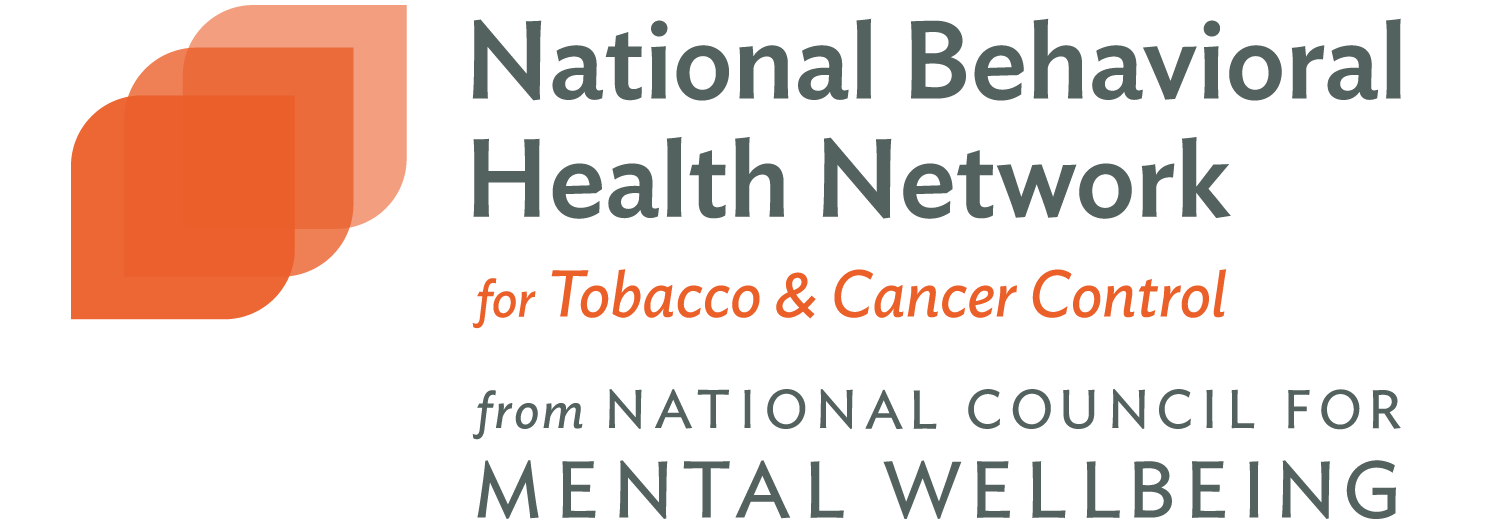On a brisk January morning, fourteen state tobacco control programs convened in Washington D.C., for the launch of the National Behavioral Health Network’s (NBHN) 2020 State Tobacco Control Community of Practice. This year marked NBHN’s tenth Community of Practice, a six-month practice-change intensive, that brought together a diverse group of stakeholders from each participating state who share a common  purpose to enhance their tobacco control efforts. NBHN’s CoP assists states on integrating evidence-based practice changes to reduce commercial tobacco-use disparities among individuals with behavioral health conditions. This goal is accomplished by engaging state tobacco control programs through in-person and virtual training and technical assistance, action planning, webinars, peer learning exchanges, and coaching with subject-matter experts.
purpose to enhance their tobacco control efforts. NBHN’s CoP assists states on integrating evidence-based practice changes to reduce commercial tobacco-use disparities among individuals with behavioral health conditions. This goal is accomplished by engaging state tobacco control programs through in-person and virtual training and technical assistance, action planning, webinars, peer learning exchanges, and coaching with subject-matter experts.
During the month of MarchCOVID-19 led to a global pandemic leading most states to issue stay-at-home orders, suspend in-person work, adopt social distancing requirements and shift day-to-day priorities to large public health response efforts. As a result, many essential public health services, including tobacco prevention and cessation programs, were impacted. Despite the challenge of a global pandemic, state CoP teams remained focused on their collective efforts to address tobacco and behavioral health priorities by advocating for stronger tobacco policies in their jurisdiction knowing that lung he alth deeply impacts COVID 19 contraction, symptoms and outcome, integrating evidence-based practices into behavioral health systems, and creating expanded access to quality care in tobacco-free facilities. A few key accomplishments from states include:
alth deeply impacts COVID 19 contraction, symptoms and outcome, integrating evidence-based practices into behavioral health systems, and creating expanded access to quality care in tobacco-free facilities. A few key accomplishments from states include:
- Delaware launched a comprehensive behavioral health protocol, including nicotine replacement therapy (NRT) accessibility, through their Delaware Quitline.
- Kentucky awarded grants to work with the behavioral health centers and partners within four counties.
- Minnesota created a new smoke-free committee to campaign for more psychoeducation around nicotine and expanded their tobacco-free grounds policy for behavioral health organizations, in addition to passing a statewide Tobacco21 law.
- Maryland developed the “Continue the Good” media and toolkits for behavioral health providers with resources to promote tobacco use dependence treatment as part of overall recovery plans.
- Tennessee significantly increased their partnerships with their state behavioral health associations, mental health agencies, statewide tobacco coalition and their anti-drug coalitions.
- Virginia sponsored state behavioral health professionals to become Certified Tobacco Treatment Specialists and developed and deployed a state survey to understand their local BH context and provider training needs.
“The fact that we can say that we were part of the Community of Practice with 13 other states and the National Behavioral Health Network; to hang our hats on that and brag about it to our internal partners… to say ‘this is actually a very big issue that spans the entire country, and we are part of something much bigger to move this work forward’ was valuable.”
-Nick Fradkin, Tobacco Treatment Consultant (WA)
As a result of the CoP, state teams shared expected and unanticipated outcomes and key learnings they believe will support long-term positive impact. Key themes that emerged as outcomes of this CoP included:
- Increased inter-departmental collaborations and commitment to supporting tobacco control strategies for individuals with behavioral health conditions.
- Increased confidence implementing tobacco control strategies that focus on individuals with behavioral health conditions.
- Identification and selection of evidence-based strategies for the next CDC tobacco control program grant cycle.
As our nation’s public health system continues to respond to an unprecedented pandemic, we are confident that members of NBHN’s State Tobacco Control CoP will lead the charge in tobacco prevention and cessation efforts for their states while reducing behavioral health disparities. In the meantime, we look forward to seeing states grow their tobacco prevention and cessation campaigns and continue serving those who need them the most.
Interested in addressing tobacco and cancer control? Need support in developing an action plan, engaging staff and/or receiving training and technical assistance? To learn more about NBHN and gain direct access to free resources, training, e-digest, or to join our next CoP visit BHtheChange.org or email us at bhthechange@thenationalcouncil.org.


